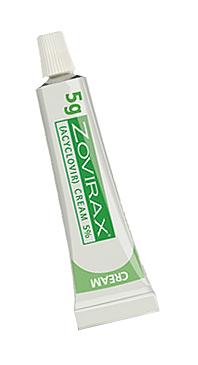Popular Articles
- Herdox Supplement Facts
- Itching from Herpes? Learn How to Stop it
- Herpes | 13 Herbs for HSV-2
- Can You Get Rid of Herpes?
- Herpes Vitamin Supplements
- Stop Recurring Herpes Incidences
- 11 Tips to Manage Your Herpes Outbreak
- Vaccine for Herpes
- Water and Herpes- Does Water Spread It?
- Bleach and Herpes
- More Articles ...
 Valtrex or Zovirax?In This Article
Both Valtrex and Zovirax are pharmaceutical drugs for herpes outbreaks, available by prescription.
There are no significant clinical differences between Zovirax and Valtrex in the way they treat herpes symptoms. Patients may choose one drug over the other because of consumer costs, possible side effects, or the number of dosages recommended per day. What is Valtrex?
Valtrex is prescribed to help shorten the time it takes to heal from a herpes outbreak, and it helps to reduce the number of outbreaks a person experiences during a year. It also helps to reduce the pain and itching associated with both genital herpes an shingles. While Valtrex does kill the herpes virus, it does not cure herpes. It will not keep a partner from getting herpes. For shingles, Valtrex is prescribed to be taken three times a day for a week. For genital herpes, Valtrex should be taken twice a day for five days. Valtrex is taken fewer times a day for suppression therapy than Zovirax because Valtrex works differently in the body than Zovirax does. Valtrex is hard on the kidneys, so people who have kidney issues or are on other medications that affect the kidneys need to make their health care provider aware of their medical conditions. Patients who are HIV positive or have AIDS should also remind their health care provider before being prescribed Valtrex. Because Valtrex is hard on the kidneys, it is important to drink a full glass of water with each dose. in addition, patients must stay very well hydrated while taking Valtrex. Side Effects of ValtrexCommon side effects of Valtrex include:
If any of these serious side effects occur, discontinue the use of Valtrex and contact a doctor immediately:
What is Zovirax?
Zovirax works by stopping the spread of the herpes virus in the body. It will not cure herpes, it will not prevent herpes outbreaks, and it will not keep someone with herpes from infecting a partner. The usual directions for Zovirax, in either cream or ointment form, is to apply the medication to the affected areas five times a day for four days at the onset of an outbreak. As soon as it feels as if an outbreak is starting, whether it starts with tingling, redness, or a bump before a blister forms, Zovirax should be applied to the skin. Zovirax is intended to be an episodic medication. Neither the cream nor the ointment form of Zovirax is intended to be used as a part of a suppressive therapy program. Zovirax cream or ointment is for the skin only and is not meant to be swallowed or to be put in eyes or the inside of the mouth or nose. Zovirax cream should not be put on genital herpes, and Zovirax ointment should not be put on oral herpes. It is not to be used as preventative medicine. Do not put either Zovirax cream or ointment on healthy skin in an effort to prevent outbreaks. Apply Zovirax cream to clean skin for cold sores. Do not put makeup on cold sores, or apply lip balm to affected areas while using Zovirax during outbreaks of oral herpes. Zovirax also comes in pill form, known by the generic name acyclovir. Zovirax was the first prescription pharmaceutical drug created for initial outbreaks and the management of subsequent outbreaks of genital herpes. Acyclovir may be the least expensive of prescription drugs for herpes. Side Effects of ZoviraxThe most common side effects of Zovirax are:
If the following serious side effects occur after using Zovirax, discontinue use immediately and call a doctor:
SourcesPubmed.gov, “Acyclovir Topical” Pubmed.gov, “Valacyclovir” Drugs.com, “Valtrex”
[+] Show All
|
|||||||||||||||||||||||
| Next Article: Itching from Herpes? Learn How to Stop it |





 Valtrex, known generically as Valcyclovir, is an oral pill taken for
Valtrex, known generically as Valcyclovir, is an oral pill taken for  Zovirax, the topical cream form of acyclovir, is usually prescribed to treat herpes simplex virus- 1. HSV- 1 is commonly referred to as cold sores or fever blisters on or around the mouth. Zovirax also comes as an ointment for genital herpes, also known as herpes simplex virus- 2 (HSV- 2).
Zovirax, the topical cream form of acyclovir, is usually prescribed to treat herpes simplex virus- 1. HSV- 1 is commonly referred to as cold sores or fever blisters on or around the mouth. Zovirax also comes as an ointment for genital herpes, also known as herpes simplex virus- 2 (HSV- 2).